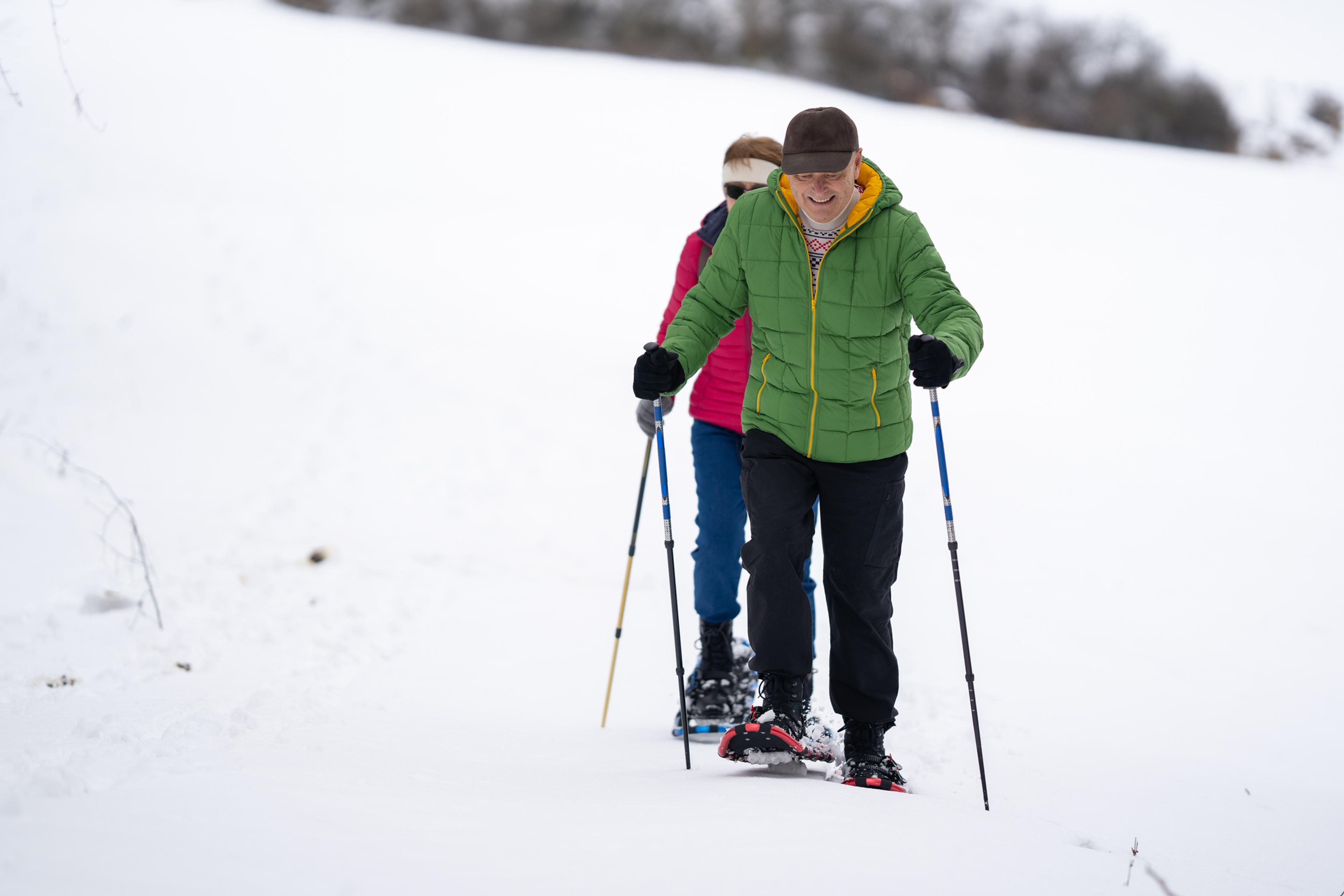Find Your Fit: Give These Low Impact Exercises and Activities a Try this Winter
Jake Newby
| 5 min read

Between the hustle and bustle of the holidays, the lack of daylight and Michigan’s cold temperatures and inclement weather, it can be challenging to stick to a workout routine in the winter. According to a National Recreation and Park Association poll, 86% of adults in the United States say their physical activity level changes during the winter, with nearly 60% of participants admitting they are less active than during other times of the year.
If you’re looking for a list of low-impact workouts to following list of low-impact winter sports and activities can help you beat the elements and stay healthy and pain-free at the same time.
Outdoor workout options
Fat biking: Also known as “fat-tire biking” or “winter biking,” this trendy winter sport is becoming a favorite in the Great Lakes State. Fat-tire bikes – which look exactly how they sound – are permittable on all Michigan trails that allow bicycles and mountain bikes. Many trails in Michigan are groomed specifically for winter fat-tire biking. Visit Pure Michigan’s page on snowshoeing for a statewide list of trails and rental information.
Winter hiking: You don’t have to stop hiking when the autumn leaves stop falling. Layering up and hiking up and down hilly terrain promotes cardiovascular health by boosting your heart rate and making it work harder. Hiking also keeps joints mobile while strengthening the muscles and bones. If you have vision or stability problems, consider purchasing trekking poles to hike with and plant in front of you as you walk, which takes pressure of your knee joints. You probably know of parks and trails near your home, but some breathtaking trails worth traveling for, according to Michigan.org, include:
- Heritage Trail in Drummond Island
- Keweenaw Trails in Calumet
- Muncie Lake Pathway in Traverse City
- Pine Baron Pathway in Gaylord
- Valley Spur Ski Trail in Munising
Snowshoeing: Speaking of walking, if you know how to walk, you know how to snowshoe. This recreational activity requires wider strides than normal so you’re not stepping on the frame of the snowshoes. Ski poles are optional while snowshoeing, but they do tend to give you a better full-body workout since you’re getting your arms involved. Many Michigan state parks have snowshoe equipment available to borrow.
Ice skating: A classic, family-friendly winter sport, ice skating is a fun and challenging activity that can be an underrated workout if you add a little speed to your stride. Always wear a helmet and well-fitting skates with sharp blades; dull skates can lead to more falls, which are common while skating ice skating. Give yourself a little added cushion by wearing extra layers to the rink. If you’re trying it for the first time, consider enrolling in kids or adult classes. Cities all over Michigan offer them. Check out Pure Michigan’s list of 10 outstanding outdoor ice-skating rinks in Michigan.
Indoor workout options
In addition to workouts like yoga, Pilates, and strength training, the winter is the perfect time to take advantage of indoor class-style fitness classes that are available in your community, many of which you can bring home with you if you buy some of the required equipment. Here are some options:
Badminton: Badminton is a fun, competitive, low-impact way to stay active and fit, regardless of age. Studies have found badminton to have a beneficial effect on heart and lung function, speed and flexibility. It also led to significant improvements in flexibility in some participants. Badminton requires quick changes in direction and rapid arm swings from a wide range of body positions. The athletic clubs and recreation centers of many Michigan communities include badminton courts.
Read the Find Your Fit story: Badminton is a Full-Body Workout with Mental and Cognitive Benefits
Barre: Barre is low-impact strength training that people of all age groups and fitness levels can try. Barre blends ballet-inspired movements, Pilates, yoga and weight work, typically with weights of between 1 and 5 pounds. Every major muscle group is worked out during a Barre class, from the upper body to the core to the lower body. Find a class near you, here.
Read the Find Your Fit story: Barre Barre Fitness Keeps Your Joints ‘Nice and Happy’ With Low-Impact Strength Training
Bounce: Another low-impact, Bounce class workout is built around trampolines. Bounce classes are synced up to the rhythm of music and incorporate lower body muscles like the hips, quadriceps, hamstrings and calves, as well as your core. When you work out on a mini trampoline’s unstable surface, you use your balance muscles to keep you steady. Find a Bounce class near you by clicking here.
Read the Find Your Fit story: Bounce Your Way to a Great Cardio Workout Using a Mini Trampoline
Qigong: Qigong is part mindful activity, part exercise. Featuring aerobic and strength components, qigong coordinates body posture, breathing and meditation. It involves fewer complex body movements than tai chi. It helps regulate the mind, breath, the body’s movement and posture, and is inclusive for all ages. Click this link to find a Qigong class near you.
Read the Find Your Fit story: Qigong’s Low-Impact, Full-Body Movements and Mindfulness Techniques Can Benefit Older Adults
WERQ: WERQ is a pre-choreographed cardiovascular dance workout class that moves to the rhythm of trending pop and hip-hop music. It’s a close cousin of Zumba, and it’s expanding quickly by the year. It’s all-inclusive and for all levels. WERQ intense enough to push even the biggest cardio buffs to their stamina limits, but modifications are on the table for anyone who’d like to break a sweat at their own pace. Click here to find a class near you.
Read the Find Your Fit story: WERQ Dance Fitness is for Everybody and ‘Every Body’
Photo credit: Getty Images





